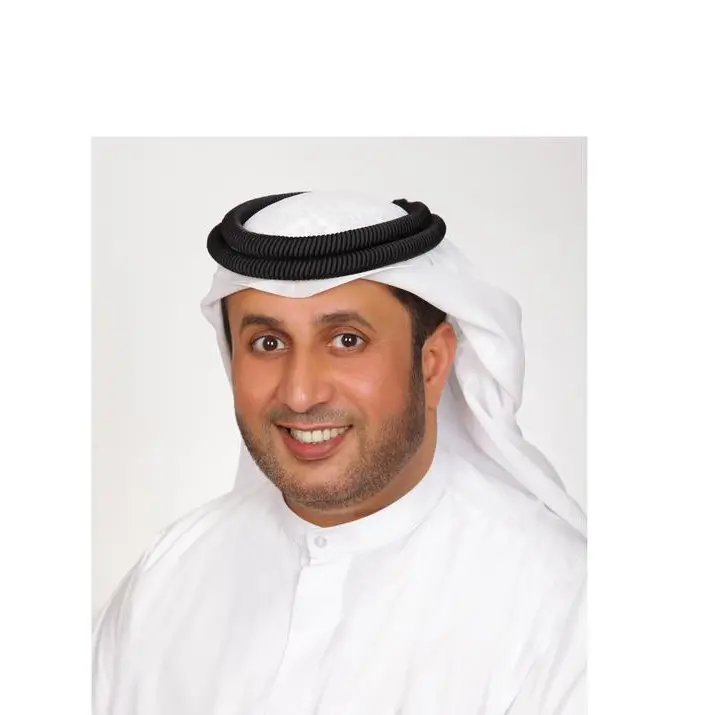IMD and SUTD’s unique ranking shows importance of citizens’ needs in policymaking
- IMD and Singapore University of Technology and Design (SUTD) release, new index of 102 Smart Cities, the only global survey based on citizens’ perceptions
- Top cities are: Singapore, Zurich, Oslo, and Geneva
- Abu Dhabi and Dubai are role models for the region
- Singapore tops new ‘citizen-centric’ global smart city index
- Many cities held back by disconnect between authorities’ priorities and citizens’ needs
Lausanne, Switzerland – Dubai and Abu Dhabi lead the region as first and second smart cities in the first edition of the IMD Smart City Index 2019 (SCI), which ranks 102 cities worldwide.
According to the new and uniquely “citizen-focused” ranking of global urban areas, which reveals the necessity of aligning policy with the lives and needs of citizens, Dubai which lands 45th globally toped Paris, Chicage and Brussles, while Abu Dhabi (56th) toped Tokyo and Osaka, all of which are considered leading global interconnected cities.
Being a globally-recognized ‘smart’ city is now critical for attracting investment and talent, creating a potential ‘virtuous cycle’ in favour of an advanced group of cities such as Singapore, Zurich and Oslo.
This new index is presented by IMD World Competitiveness Center’s Smart City Observatory, in partnership with Singapore University of Technology and Design (SUTD). IMD’s SCI is the only global index of its kind, the SCI uniquely focuses on how citizens perceive the scope and impact of efforts to make their cities ‘smart’, balancing “economic and technological aspects” with “humane dimensions”.
The Top 10 smartest cities in 2019 are: Singapore (1st), Zurich (2nd), Oslo (3rd), Geneva (4th), Copenhagen (5th), Auckland (6th), Taipei (7th), Helsinki (8th), Bilbao (9th) and Dusseldorf (10th).
Commenting on the performance of Abu Dhabi and Dubai, Professor Arturo Bris, Director of the IMD World Competitiveness Center said: “Abu Dhabi and Dubai are two cities that stand out in the whole MENA region in terms of quality of technology and provision of social services to improve quality of life. In the future, the focus of the two cities on city planning and design will continue to be a role model.”
“Smart cities are becoming magnets for investment, talent and trade. Yet, a significant part of the efforts and energy spent seem to be disconnected from the long-term aspirations of citizens. Without citizen’s support and engagement, smart cities may not be sustainable. The SCI intends to fill a gap by being a reference and tool for action to build inclusive and dynamic cities,” stated Bruno Lanvin, President of the IMD’s Smart City Observatory at the IMD World Competitiveness Center.
There is no ‘one size fits all’ strategy to becoming a smart city: although all three leading cities score highly for ‘structures’ (how services are made available to citizens) while their scores vary for ‘technologies’, which assesses real impact on citizens’ daily lives. Singapore, for example, performs well in safety, monitoring of air quality and traffic congestion, while Zurich is strong for public transportation and access to medical and cultural services. Oslo’s citizens hail the quality of ‘circular economy’ solutions, on-line voting and bicycle-centric mobility.
The economic performance of smart cities is deeply influenced by their context. For example, large urban centres such as San Francisco (12th) or London (20th) make the Top 20 of the IMD Smart Cities Index 2019. But cities of smaller size, such as Bilbao (9th) - with populations below 500,000 – rank remarkably high.
Smart cities are a fast-growing species, and fertile ground for new experiments in critical areas, ranging from urban planning, sustainable energy, and transport strategies to social integration and talent attraction. As leaders and citizens around the world assess, design, implement and improve on ways to create better cities, they are confronted with a multitude of decisions and partial solutions to specific problems such as traffic congestion, waste management and crime.
A city level survey gauged inhabitants’ perception of their urban setting and services provided. ‘Smart’ is defined as assessing a city’s efforts and success in embracing smart technologies to improve the lives of their citizens. The index is then transformed into a rating, which creates an independent rating of the ‘smartness’ of a city.
Concerns and aspirations of citizens vary widely depending on culture and socio-economic environments. SCI includes an assessment of attitudes towards the use of personal data, face recognition and overall trust towards local authorities. On that account, Chinese citizens - in Zuhai (40th),Tianjin (41st), Chongqing (42nd), Shenzhen (43rd) and Hangzhou (44th) and those in Dubai (45th) seem to be more at ease than in other parts of the world, such as Chicago (53rd) , Denver (33rd), Geneva (4th), New York (38th) and Paris (51st).
“The Asia-Pacific region has a special role to play in helping us identify the right strategies to build smart cities in a way that should be human-centric rather than technology-centric. The experience of Singapore is very different from that of Shenzhen or Jakarta, or even Melbourne,” stated Professor Chan Heng Chee, Chairman of the Lee Kuan Yew Centre for Innovative Cities at SUTD.
Obstacles in the way of the growth of ‘smart cities’ include a gap between the priorities of municipal authorities and those of their citizens. Many technologies remain largely ignored by the populations they are claiming to serve. In many instances, advanced on-line services are theoretically available to citizens, but too cumbersome or insufficiently advertised to meet a critical mass of users. In most cases, such services seem to have been initiated in a ‘top-down’ manner, rather than being based on the priorities of citizens.
“Smart cities are growing and blossoming in all parts of the world. Economic realities cannot be ignored: cities in poorer countries face disadvantages, which will require specific actions to correct along the path towards smartness,” stated Professor Arturo Bris, Director of the IMD World Competitiveness Center.
With respect to Abu Dhabi and Dubai, this two cities stand out in the whole MENA region in terms of quality of technology and provision of social services to improve quality of life. In tge future, the focus of the two cities on city planning and design will continue to be a role model.
Quality of life (including environment, safety, access to health and education services, but also mobility and social interaction) seem to be more and more prominent aspirations for ‘smart cities’ worldwide.
© Press Release 2019Disclaimer: The contents of this press release was provided from an external third party provider. This website is not responsible for, and does not control, such external content. This content is provided on an “as is” and “as available” basis and has not been edited in any way. Neither this website nor our affiliates guarantee the accuracy of or endorse the views or opinions expressed in this press release.
The press release is provided for informational purposes only. The content does not provide tax, legal or investment advice or opinion regarding the suitability, value or profitability of any particular security, portfolio or investment strategy. Neither this website nor our affiliates shall be liable for any errors or inaccuracies in the content, or for any actions taken by you in reliance thereon. You expressly agree that your use of the information within this article is at your sole risk.
To the fullest extent permitted by applicable law, this website, its parent company, its subsidiaries, its affiliates and the respective shareholders, directors, officers, employees, agents, advertisers, content providers and licensors will not be liable (jointly or severally) to you for any direct, indirect, consequential, special, incidental, punitive or exemplary damages, including without limitation, lost profits, lost savings and lost revenues, whether in negligence, tort, contract or any other theory of liability, even if the parties have been advised of the possibility or could have foreseen any such damages.



















